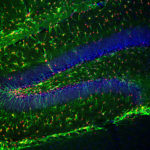
During his presidential campaign, Barack Obama pledged that one of his priorities would be to lift the ban on federal funding for human embryonic stem cell research. Under the Bush administration, federal funds were approved only for research that used cells from a few select lines of existing stem cells developed from human embryos. That severely limited research and was a flash point in the culture wars.
Background
On March 9, 2009, President Obama issued an order that rescinded the Bush-era policy by allowing federal funding for research on stem cell lines in existence and others that will be created—though not on embryos themselves. That provides a far wider sample for scientists to draw on. As this New York Times story reports, Obama is leaving to Congress the decision whether to overturn a ban on using tax dollars “to create human embryos—a practice that is routine in private fertility clinics—or for research in which embryos are destroyed, discarded or knowingly subjected to risk of injury.” Obama also said he would not push for such a legislative change, and in his announcement, the president also denounced human cloning.
Read the Washington Post story and “The Fix” blog at The Post, which has a roundup of the reaction and some of the political and ethical calculations that went into the issue.
By early February 2009, politicians and researchers were publicly pushing the Obama administration to act. On Feb. 15, 2009, Obama adviser David Axelrod indicated that change would be coming: “We’re going to be doing something on that soon, I think. The president is considering that right now,” Axelrod told Fox News Sunday.
A Feb. 19, 2009, story from The Washington Post, “Scientists Await Action on Stem Cells,” reports on the frustration over the delay and how researchers are readying for the ban’s reversal.
The main political debate was whether Obama would make the change via executive order or whether he would sign legislation passed by Congress.
Still, Obama’s action pushed a perennial hot button in the culture wars and sparked another debate over bioethics. Complicating the issue is that not all conservatives, or even religious conservatives, oppose stem cell research as strongly as others. GOP presidential candidate John McCain, for example, supported the research, as have some other leading Republicans, such as Orrin Hatch, a Mormon from Utah. Mormons generally allow embryonic research because the faith does not believe the embryo is human until implantation in the uterus. Moreover, research holding out promising results with non-embryonic stem cells is another factor in the mix. Finally, it remains to be seen whether overwhelming public concern over the economic crisis mutes some of the outcry.
Resources
The Pew Forum on Religion & Public Life has a package of resources, “Stem Cell Research at the Crossroads of Religion and Politics,” that provide background on the issues at stake and the science behind the research.
A USA Today/Gallup Poll conducted Jan. 9-11, 2009, gauged how important people feel it is for Obama to follow through on 10 of his campaign promises. Keeping his pledge to lift restrictions on embryonic stem cell research funding was “very important” to 42 percent of those surveyed, putting it near the bottom in the list of 10. The economy and related concerns dominated the list.
Read a Gallup Poll analysis of the stem cell research issue and the public’s attitudes.
Bioethics centers
-
Center for Biomedical Ethics & Humanities
The Center for Biomedical Ethics & Humanities at the University of Virginia combines the study of health care and illness with social science and humanity disciplines. Daniel M. Becker is director.
-
Stanford Center for Biomedical Ethics
The Stanford Center for Biomedical Ethics at Stanford University does interdisciplinary research in biomedical ethics. David Magnus is director.
-
Online Ethics Center for Engineering and Research
The Online Ethics Center for Engineering and Science is maintained by the National Academy of Engineering. It is part of the Center for Engineering, Ethics, and Society. The Online Ethics Center provides information on ethics as related to science and engineering.
